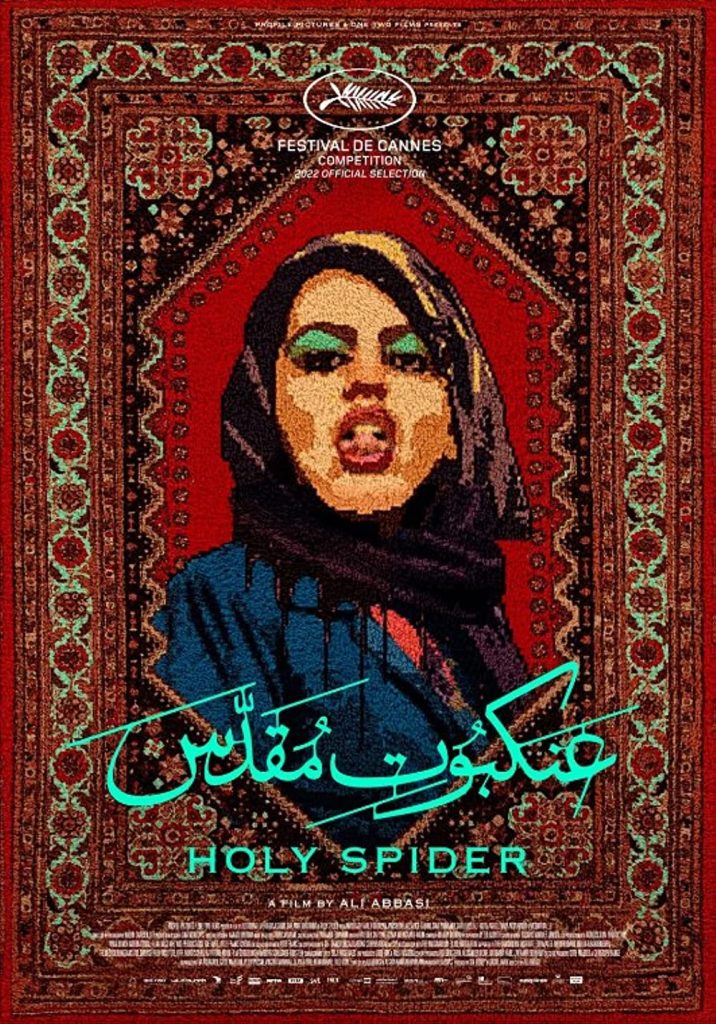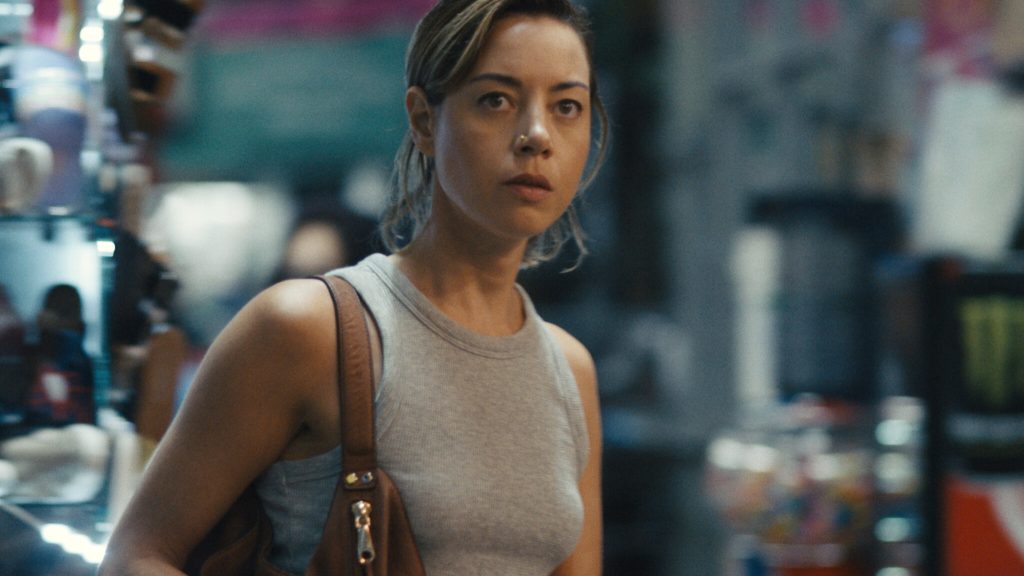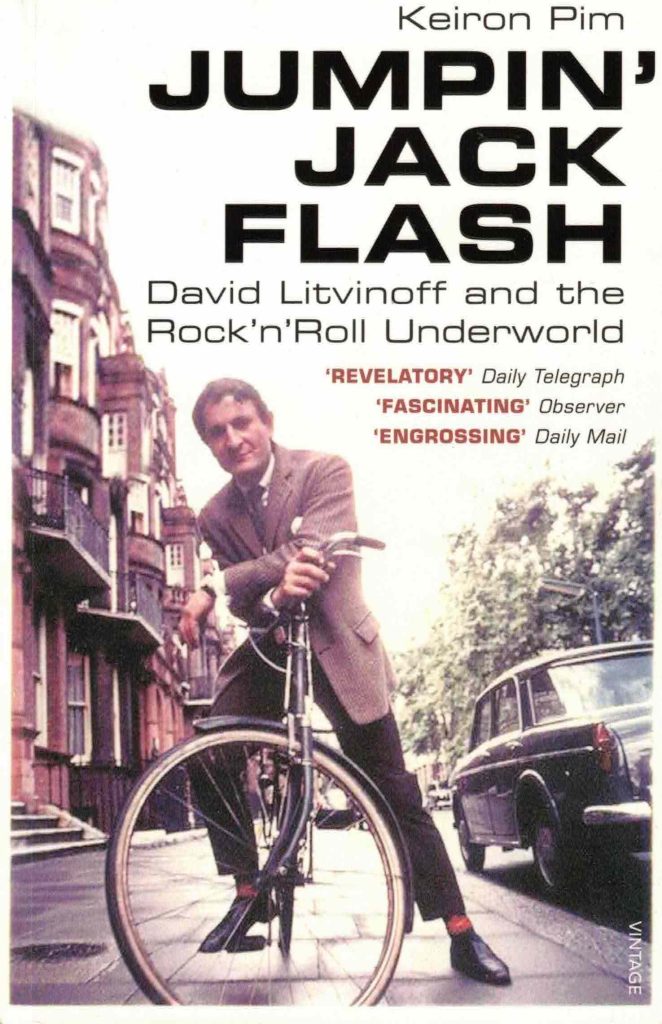The end of the year nears. That means it is time for my year cultural highlights of 2022. So, without further introduction, let’s get into it.
Film
Possibly the best new release I saw in the past 12 months was Iranian director Ali Abbasi’s The Holy Spider (2022). The story of a young female journalist (a powerhouse performance by Zar Amir-Ebrahimi) investigating a religious serial killer in a rural Iranian city, little did I know when I saw it as part of Melbourne International Film Festival in September that it’s damning commentary on the male dominated nature of Iranian society, would find such a strong real world echo in the female led protest movement shaking the country to its foundations today. While The Holy Spider is not for the faint hearted, its horror is brilliantly conveyed through show don’t tell storytelling. Seriously, a lot of directors could learn from watching this film that you don’t always have to hit the audience over the head with a narrative sledgehammer.
Two other 2022 releases make my best of film list for the year. The first is Emily the Criminal. This is a whip smart neo noir about a young woman who falls into crime, featuring Aubrey Plaza in the lead role. I call it a millennial revenge film, which I think is THE upcoming crime genre with a bullet. Revenge against shitty work conditions, wage theft, unpaid internships, massive student debt & lack of the welfare state states that so many of us – in Australia at least – have been able to rely on as we grew up.
The second is the latest release by Blue-Tongue Films, The Stranger. Starring Joel Edgerton and British actor Sean Harris (who blew me away in his turn in the adaptation of the David Peace novel Nineteen Eighty), it is based on the real life undercover police operation to apprehend the killer of 13-year old Daniel Morcombe case in Queensland in 2003. I didn’t know this when I started watching it and it made the film all the more disturbing.
There are so so many old films that gave me pleasure in 2022. I had a major and very overdue binge on spaghetti and so-called Zapata westerns (a variation of the spaghetti western genre set during one of Mexico’s post-1900 periods of revolution). Lewis Allen’s Desert Fury (1947), a completely new to movie I watched part of my Noirvember viewing, gets props for being queerest classic film noir I’ve ever seen. Lisbeth Scott falls for John Hodiak’s hoodlum, who’s in an obvious gay relationship with his enforcer (Wendell Cory), while Burt Lancaster’s small town sheriff smoulders on the sidelines. Obviously, the word ‘gay’ is never uttered but other than that, for 1947 there’s not much attempt to code what’s going on.
The other old film that I watched this year, that I still think about a lot, is Report to the Commissioner (1975). It opens with the discovery of the body of a murdered woman in a loft apartment in a run-down part of New York. It is quickly revealed that the deceased was a policewoman working an unorthodox undercover operation to snare a charismatic African American drug dealer with suspected links to black militant organisations. The resulting scandal and high-level investigation rapidly focus on the role of Detective Bo Lockley (Michael Moriarty), a young progressive rookie hopelessly out of his element in a tough inner-city precinct, who is being fitted up as the fall guy for the mistakes of much more senior police. Report to the Commissioner deals with inner city crime, mental illness, racism, and police corruption. As if this was not enough, the plot almost completely pivots about two thirds of the way through, further upending stereotypes around race and gender. An absolute hand grenade of a neo noir. I reviewed Report to the Commissioner as part of an article I did for the US site CrimeReads on underrated American neo-noir of the 1970s, which you can read in full here.
Television
My television highlight of 2022 was Black Bird. Created by Dennis Lehane and directed by Michaël R. Roskam, it starred Taron Edgerton – unrecognisable from his turn as Elton John in Rocketman – as James Keene, a charismatic criminal who is offered a pardon from the 10 year jail sentence he is serving if he can use his charm to elicit a confession from a suspected serial killer. Based on a true story, this was a dark, fast paced series that earned extra kudos in my book for confining itself to six tight episodes, rather than taking the increasingly common path of stringing the story out longer than it needed to be. Paul Walter Hauser was extraordinary as the suspected killer and the series also has a great performance by Ray Liotta, one of his last, as Keene’s tortured former cop father.
Like everyone else, it seems, I loved Slow Horses, the adaptation of the first of the espionage novels by Mick Herron (I’m going to try and read some of the books as well in 2023). I also enjoyed Archive 81, Rebecca Sonnenshine’s 2022 Netflix horror series. The plot concerns a mentally troubled archivist who is hired by an enigmatic and deeply creepy businessman to restore a collection of damaged video tapes made by filmmaker who was investigating a dangerous cult that has as its base of operations in an old apartment block, a place very similar to the Bamford building in Ira Levin’s Rosemary’s Baby. It is a pity that this canned by Netflix after just one series because I thought it had a lot to offer.
My other major TV recommendation, if you can access it, is the second part of the early 1990s Melbourne police procedural series, Phoenix. The first installment, which I reviewed on my site here, focused on an elite group of Victorian cops, the Major Crimes Squad, that are investigating a car bomb that explodes outside a Christmas in July celebration held by the police, which kills two of their number, a plot loosely based on the real-life car bombing of the Russell Street police headquarters in 1986. The second series, which aired on Australian TV in 1993, concerns a Major Crimes investigation into a series of violent aggravated burglaries that, in turn, become linked to a drug importation ring. Phoenix is a rare evocation of Melbourne, my hometown, as a noir city, as well as a wonderfully gritty piece of Australian crime television. I like to think that my online advocacy on behalf of Phoenix was one of the factors behind the Australian Broadcasting Commission’s decision to put it up on its streaming channel, ABC iview. Whatever the case, iview can you please out up the Phoenix spin off series Janus, which depicted the police’s efforts to break up the activities of a vicious criminal family, based on Melbourne’s real life Pettingill clan.
Books
I continued to slowly make my way through Georges Simenon’s romans durs (you can read a piece I wrote for CrimeReads on why I like Simenon’s bleak psychological noirs so much, at this link) and discovered the books of contemporary French noir writer, Pascal Garnier, whose work is very much like Simenon’s. I also managed to re-read – for the third time – three out of four of Peace’s utterly brilliant Red Riding quartet (the last one, 1983, awaits me in 2023.
In terms of new fiction, two books are worth mentioning. The first was Perth writer David Whish-Wilson’s historical noir, The Sawdust House. This focuses on the life of Irish-born James ‘Yankee’ Sullivan, arrested as part of the nativists attempt to root out and crush Australian criminal influence in San Francisco. Languishing in a jail cell, Sullivan recounts his life to American journalist, Crane, who has come to the city with a mission and secrets of his own. Sullivan is a former convict, boxer and publican, whose largely brutal existence Whish-Wilson portrays in jaw droppingly good prose. Indeed, one of the highlights of this book is not only how sure the author is of his writing style, but how effortlessly he seems to inhabit the world he is writing about. Whish-Wilson’s portrayal of Sullivan, his milieu, the people he meets and the events he has been part of is both gripping and, at times, intensely moving. The second was This All Come Back Now, a collection of Australian First Nation’s science fiction, edited by Mykaela Saunders. This is the first such collection put together in Australia, and it is excellent. A slightly longer review of this book can be found here on this site.
As was the case in 2021, my reading increasingly veered towards non-fiction this year. My highlights have included Glenn Frankel’s Shooting Midnight Cowboy: Art, Sex, Loneliness, Liberation and the Making of a Dark Classic (2021), We are the Mutants: The Battle for Hollywood from Rosemary’s Baby to Lethal Weapon (2022 – which I reviewed on this site here), and Elaine Mokhtefi’s fascinating 2018 political autobiography, Algiers, Third World Capital. But the non-fiction book that came out of complete left field (a random recommendation on social media) and utterly blew me away, was Kieron Pim’s Jumpin’ Jack Flash: David Litvinoff and the Rock ’n’ Underworld (2016). Litvinoff was incredibly reclusive gay, Jewish, working class cultural provocateur and libertine, who moved between the worlds of art, bohemia, high society film, music and organised crime in 1950s and 1960s London and further afield (he even made it to Australia in the early 1970s). Pim beautifully and evocatively weaves together the disparate threads of Litvinoff’s itinerant life and travels, in the process helming not only a riveting history of London during the time when crime and high/low culture mixed, but a wonderful psychogeography of the city. On a personal note, I have never been to London and no single book has made me want to travel there as much as this one.























Fyi – MHz Choice in North America have 6 movies based on Georges Simenon novels
https://watch.mhzchoice.com/georges-simenon-mysteries
Cheers, Hans, I am very keen to watch some films based on Simenon books in 2023.
Great write up, Roo. Holy Spider, Emily the Criminal and The Stranger are all up there among the best films I’ve seen this year, and re-watching The Wages of Fear (1953) only made me admire it more. I’m glad you convinced me to watch Black Bird, too; it was excellent. As for my reading highlights, you’ll need to wait for my own end of year wrap up…
One limited series that has not received the attention it deserves is Black Butterflies (Les papillons noirs) from France. I have been so surprised that this series has fallen so under the radar.
Eric,
That sounds amazing. I must check out how I can see it in Australia.
Hope all is well,
Andrew